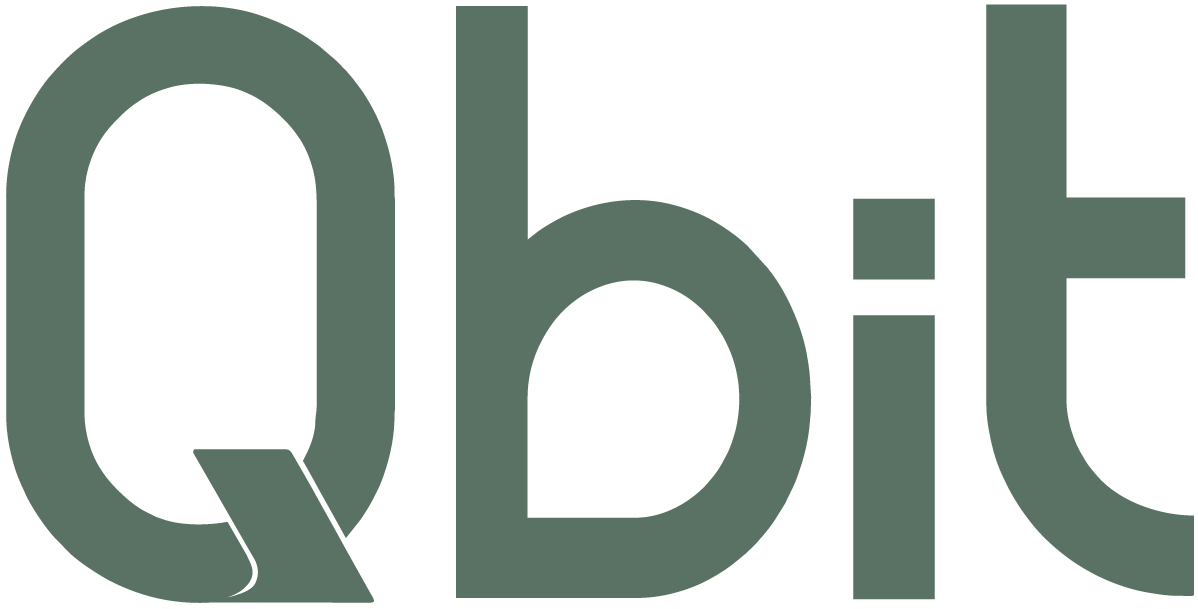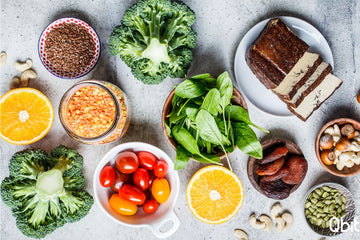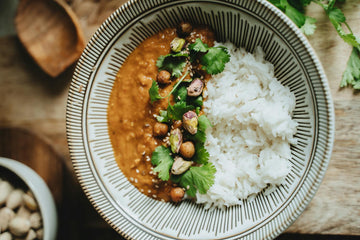As more people adopt a vegan lifestyle, understanding how to meet nutritional needs through plant-based sources is crucial. A balanced vegan diet is rich in various nutrients, but there are specific vitamins and minerals that require attention to ensure optimal health. In this article, we explore the essential vitamins and minerals for vegans, their benefits, and how to source them effectively through a plant-based diet.
Why Vegan Nutrition Needs Extra Attention
A vegan diet, devoid of animal products, naturally excludes common sources of certain key nutrients. While a vegan lifestyle offers many benefits, including reduced risk of chronic diseases and a smaller environmental footprint, vegans need to be mindful of getting sufficient vitamins and minerals that are typically abundant in animal products. Nutrient deficiencies can lead to a range of health issues, making it important to stay informed about how to balance your intake of these critical components.
Vitamin B12: A Non-Negotiable for Vegans
Vitamin B12 is perhaps the most well-known nutrient that vegans need to supplement or carefully monitor. This essential vitamin supports the body’s nerve and blood cell health and aids in DNA production. Unfortunately, B12 is not found in plant foods in adequate amounts, so vegans must rely on fortified foods or supplements to meet their needs.
Best Vegan Sources of B12:
- Fortified plant-based milks (almond, soy, oat)
- Fortified breakfast cereals
- Nutritional yeast fortified with B12
- B12 supplements
Deficiency Symptoms: Fatigue, weakness, memory issues, and neurological disorders. Regular blood tests can help monitor B12 levels and avoid these health risks.

Iron: Avoiding Anemia in a Plant-Based Diet
Iron is another critical nutrient, especially for women, who are at a higher risk of deficiency due to menstruation. Plant-based sources of iron, known as non-heme iron, are less readily absorbed by the body compared to the heme iron found in animal products. This means that vegans need to consume more iron than non-vegans to meet the same requirement.
Best Vegan Sources of Iron:
- Lentils
- Spinach
- Chickpeas
- Quinoa
- Pumpkin seeds
To enhance iron absorption, pair iron-rich foods with vitamin C-rich foods like oranges, bell peppers, or tomatoes. Avoid consuming iron-rich meals with calcium-rich foods or beverages like coffee or tea, which can hinder absorption.
Deficiency Symptoms: Fatigue, shortness of breath, dizziness, and weakened immune function.

Omega-3 Fatty Acids: A Heart-Healthy Nutrient
Omega-3 fatty acids are essential for brain health, reducing inflammation, and promoting heart health. While the primary source of omega-3 is fish, vegans can obtain it from plant sources, particularly ALA (alpha-linolenic acid). The body converts ALA to the more beneficial EPA and DHA, though this conversion is often inefficient.
Best Vegan Sources of Omega-3:
- Flaxseeds (ground)
- Chia seeds
- Hemp seeds
- Walnuts
- Algal oil supplements (a direct vegan source of EPA and DHA)
Including a daily serving of these foods ensures you are meeting your omega-3 requirements and promoting cardiovascular and cognitive health.

Calcium: Strong Bones Without Dairy
Calcium is vital for maintaining strong bones and teeth, as well as for proper muscle function and nerve signaling. Many vegans avoid dairy, a common source of calcium, so they must seek alternative sources. The good news is that many plant-based foods provide ample calcium when eaten in sufficient quantities.
Best Vegan Sources of Calcium:
- Fortified plant-based milks (soy, almond, oat)
- Tofu set with calcium
- Broccoli
- Kale
- Almonds
Deficiency Symptoms: Osteoporosis, brittle nails, muscle cramps, and tooth decay.
Ensure you are also getting enough vitamin D, which enhances calcium absorption. Sunlight is the best source of vitamin D, but during winter months or for those living in areas with limited sunlight, fortified foods and supplements are recommended.

Vitamin D: Beyond Bone Health
Vitamin D plays a key role in calcium absorption and bone health, but it is also essential for immune function and mood regulation. Since there are few natural food sources of vitamin D, and vegans avoid fortified dairy products, this is a nutrient that can easily be missed.
Best Vegan Sources of Vitamin D:
- Sunlight (aim for 10-30 minutes of sun exposure daily)
- Fortified plant-based milks
- Mushrooms exposed to UV light
- Vitamin D2 or D3 supplements (choose D3 from lichen for a vegan-friendly option)
Deficiency Symptoms: Bone pain, muscle weakness, increased risk of infections, and mood changes.

Zinc: Immune Support and Wound Healing
Zinc is crucial for immune system function, wound healing, and DNA synthesis. While plant-based sources of zinc are abundant, they may be less bioavailable due to compounds like phytates in legumes and grains, which inhibit absorption.
Best Vegan Sources of Zinc:
- Pumpkin seeds
- Chickpeas
- Lentils
- Whole grains (quinoa, oats)
- Tofu
To maximize zinc absorption, include soaked or sprouted grains and legumes in your diet, which help reduce phytates.
Deficiency Symptoms: Frequent colds, slow wound healing, loss of appetite, and skin issues.

Once you have established what your diet may be lacking, turning to a vitamin or mineral supplement can be the easiest and most efficient way to give your body those added nutrients. Consider trying a superfood supplement or greens powder that is high in quality and contains nutrient-rich ingredients. As an all-natural supplement filled with vitamins, minerals, and superfoods, Qbit can help bridge potential gaps in your diet
Whether you are following a plant-based diet or are interested in incorporating supplements into your diet, Qbit can help you get started on your health journey.
Be sure to speak with your doctor or nutritionist if you are interested in learning about what vitamins and minerals may support your specific health needs or if you plan on adding a supplement to your diet.
Final Thoughts
While following a plant-based diet can offer a variety of potential health benefits, it is also important to ensure your body is not missing out on any vital nutrients it needs to function properly. The five vitamins and minerals, as discussed above, are imperative in supporting balanced body functions for vegans.
If you are looking for a more holistic approach to your health or are interested in giving your body the nutrients it needs to flourish, talk to your healthcare provider or personal nutritionist to guide your path to wellness.












